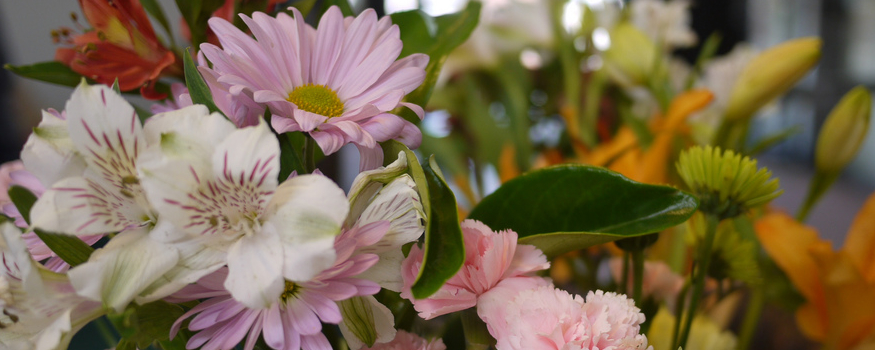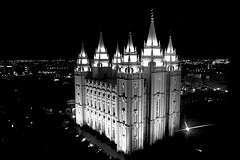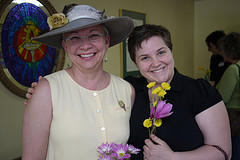(This series of posts is by an anonymous couple who’ve decided to launch an experiment: a summer of church hopping. Every post will include the perspectives of each in a “she said/he said” format.)
A few weeks ago, I walked with my mom and her same-sex spouse around Temple Square in Salt Lake City. We were staying with my mom for a while and I thought it would be a valuable experience for my kids to have a look around. It’s their cultural heritage, after all. My mom and her partner agreed to come with us, if only to spend more time with us.
As we toured the Square and the Conference Center, my mom and her spouse were discretely affectionate, only holding hands when they couldn’t be observed. They were married a few months ago when it was legal for a brief period in Utah, but here, at Temple Square, they had to pretend to be casual acquaintances. My mom shed tears at one point, remembering all the good in the church she grew up in and feeling the pain of rejection anew. And I felt like a jerk for even suggesting the trip.
As we exited the Square, a shabbily-dressed woman asked us for money. My mom with her big, soft heart could not say no. She is truly one of the most Christ-like people I know-compassionate to the core.
And now you know why finding an open and affirming church is so vital to me. That brings me to the Unitarian Universalist Church. We’ve been to the UU church in our community a handful of times now. The UU’s policy of radical hospitality, welcoming all those who come in the spirit of worship no matter their background, is intensely refreshing, especially when I reflect on my recent visit to Temple Square.
The UU congregation seems particularly friendly to newcomers in many ways. Members wear name badges and newcomers can make themselves a badge if they choose. There are laminated sheets in each pew that outline the seven principles of UU members. What would it be like if the basic tenets of Mormonism were outlined on a single page and put in the pews of LDS chapels?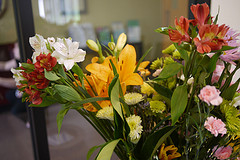
Also, there is no communion of bread or wine wherein only members partake. Instead, there is a flower communion at the end of the school year and a water communion when school starts up again. I have only attended the former. Everyone brings a flower and sets it in a designated area in the chapel. During the service, everyone is invited to come forward and get a different flower as a symbol of the beauty and diversity of humankind. Even though we didn’t bring flowers as visitors, we left with a daisy, a rose, a hydrangea, and a sprig of fragrant lavender, much to my girls’ delight.
I notice on the way out a huge colorful banner that says, “Standing on the side of LOVE.” That’s the side I want to be on, too.
Unitarian Universalism is a logical place to land for someone who has come to reject the “one true church” idea. No prophets. No scriptures. No dogma. All of that is replaced with compassion, service, and concern for the environment. There is no emphasis on trueness, and an overwhelming emphasis on goodness.
As much as I embrace UU’s ideals, I haven’t been terribly impressed by the handful of services that I have attended. Don’t get me wrong. I certainly enjoyed the sermon on Hawaiian culture accompanied by hula dancing. The marimba performance on another occasion was also very entertaining. The flower communion was quite lovely. But it felt more like a lecture club than a church, which left me wondering why I particularly needed to be there. It was obvious that others around me felt something of the sacred in these activities, but it was eluding me.
This week was different. For one thing, a mother-daughter duo played the musical numbers, which included classical and Appalachian gospel styles. It just struck me as more “churchy.” I’ll chalk it up to my Western cultural heritage. Mainly, however, it was the sermon, which this time was delivered by a member of the congregation (normally the pastor seems to do it). He stood up and made a few jokes in the way that Mormons often do at the beginning of talks. My “modar” (Mormon radar) beeped a little louder when he explained that he was going to share his experience with finding morality after losing faith in the institution that used to supply him with it. Modar readings went off the chart when he said that he was one of nine siblings, and had six kids of his own. Finally he just came right out and said that he was raised LDS.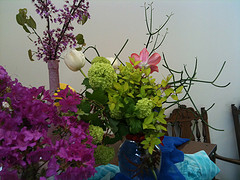
I found his story powerfully uplifting. It was basically a conversion story in reverse. Most conversion stories begin with the person having questions for which the Church is able to provide answers. His began with questions for which the Church does not provide satisfactory answers. Most end with a whole-hearted embrace of the Church’s moral prescriptions; his ended with a whole-hearted embrace of compassion as the only legitimate moral compass. I could identify with his struggle, which made it more edifying to me than any dance or drum line.
I guess, then, that the ideal church experience for me would look something like the love child of Universalism and Mormonism. It would be undogmatic and compassion-focused, like Universalism, but, like Mormonism, each week we would hear fellow congregants’ personal experiences with the never-ending process of spiritual maturation.

